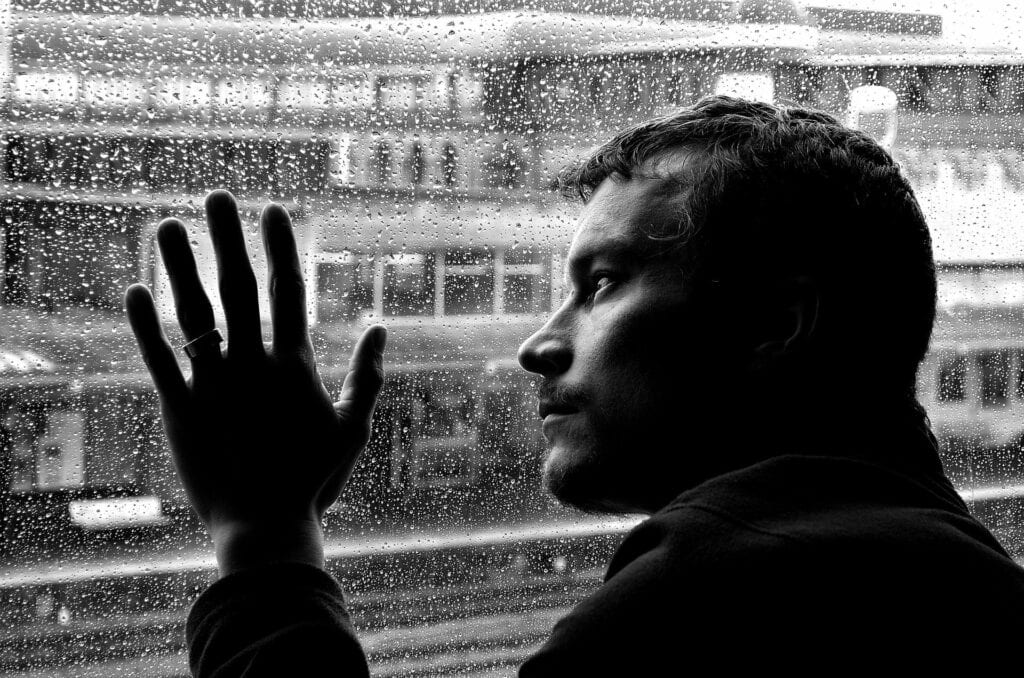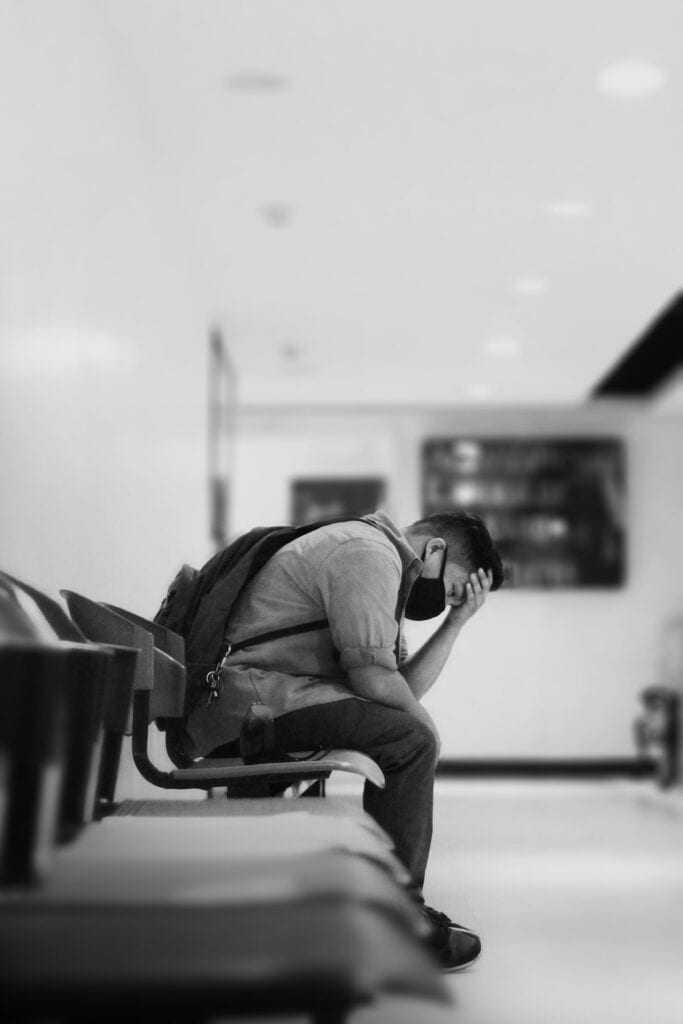|
|
The digital nomad lifestyle is often characterized as one that offers a better balance between work and leisure. Many people assume that it will be better for their mental health than remaining trapped in the mousetrap of a corporate 9-5 existence.
But, as with most things in life, the reality is far less simple.
While the digital nomad lifestyle can certainly help you lift yourself out of some negative routines and situations, and put you in a position to make more of your life, it also presents a whole range of new issues that can be just as challenging to your mental health.
And unlike the problems of burnout, stress, and disconnection in the corporate world, which are now relatively well understood, the mental health crises of digital nomads are relatively unexplored territory.
Let’s start to throw some light on the subject by looking at some of the main mental health challenges that digital nomads face, and some of the things that you might be able to do to help prevent and combat these challenges.
But we need to acknowledge that this discussion will only begin to scratch the surface of what are a series of deep and complex issues.
Lack of Routine Undermines Stability
Part of the attraction of the digital nomad lifestyle is that you can escape the boring and pointless routine or commute, work, commute, sleep, and then partying too hard on the weekends to make up for it all.
While this is an unhealthy routine that is certainly worth deconstructing, the fact is that human beings are creatures of habit and most of us thrive on routine. So, while breaking our routine, mixing things up, and doing something spontaneous can be very good for us, having no routine at all can leave us feeling adrift and out of control.
While you don’t want to fall into the trap of over-scheduling your life, introducing some routine can help you feel like you are more in control of your time. A consistent morning ritual can be a great place to start.

Loss of Self-Care Routines
While the digital nomad lifestyle might help you escape negative routines, we also often lose positive routines, and the put ourselves in positions where they are hard to re-establish.
Self-care routines are notoriously difficult to maintain when you are on the road, and you are living in environments over which you have little control.
Without steady access to a gym, your fitness routine might fall by the wayside. When you don’t have access to good cooking facilities, don’t know much about local food, and find it hard to procure your favourite healthy foods, your diet and eating schedule can quite become erratic and unhealthy.
Your sleep can be disrupted and managing the lines between work and leisure can become challenging as you do it all from the same accommodation space.
Moreover, when you are short on time, have a heavy work schedule, and are living in a part of the world where there is so much to see and do, self-care commitments are generally the first to get dropped.
Skipping these important things are bad for our mental health, and they are also bad for our physical health, which have further knock-on problems for our mental health.
Digital nomads need to realize the importance of self-care and choose to make them a priority among the many things vying for their time and attention. We have written several articles focussed on the various areas of self-care that might be helpful including: staying fit on the road and how to get a good night’s sleep.
Lack of Control
Related to our loss of routine, when we travel, we sacrifice a lot of the control that we have over our lives.
We generally end up inhabiting spaces that are not our own, and where we are restricted in many ways. We are usually unable to organize the space how we want physically and are generally unable to control all the things that happen in the space in terms of noise and the presence of others.
We may lose control of other important elements of our lives as we are forced to work around business hours – which often occur outside of our current time zone – transport schedules, not to mention flight delays and cancellations.
Living in these “borrowed environments” in which many things are out of our control can leave us feeling like we don’t really have a safe haven when we need to escape from the world and be on our own. It can also work to rob us of a sense of agency within our own lives.
Digital nomads often need to learn techniques for shutting out their environment and entering their own “mental” safe space, through practices such as meditation.
It can also be a good idea to take more control over the things that are within your control. For example, having your computer set up exactly the way you want it and a consistent way of organizing your bags. These are small things that can help you reassert a bit of agency.
Travel Burnout
We have already mentioned delayed flight, but flights don’t have to be late to cause you a high level of stress.
One of the biggest mistakes that digital nomads make is to try and squeeze in too much. Many will try and cover twelve cities in the space of a month, while maintaining a full workload.
This exacerbates all the problems already discussed as you are never in one place long enough to establish new routines and start to feel comfortable.
Many travellers suggest that this type of rapid travel also makes them feel disconnected from the world that they are moving through, as they are only ever in one place long enough to dip a toe in the water. They never get to dive deep and truly understand where they are.

In response to this consistent challenge for digital nomads, there is now a slowmadism movement, which advocates for slower travel, which is better for you, better for the environment, and just enriches the digital nomad experience overall. You can read more about slowmadism here.
We have talked extensively about travel fatigue, what causes it, and how to combat it in the past. You can read our complete article on Travel Fatigue and Burnout here.
Constant, Low-Level Anxiety
One of the biggest causes of mental health issues in the modern world is constant, low-level anxiety caused by the pressures to “do it all”. These days we are all expected to excel professionally, to be perfect parents, and also play sports, be artistic, and much more.
These pressures trigger our stress hormones. But we evolved to experience stress for short periods of time in response to immediate forms of danger. The stress hormones release into our body for a limited period of time to give us the energy and focus to do what needs to be done to avoid the danger.
But now, our constant level of stress means that small amounts of stress hormones are constantly being released into our body, which are damaging to both of physical and mental health.
But aren’t digital nomads immune from this kinds of low level “expectation” stress? Absolutely not!
Digital nomads often work as freelancers. This means an insecure income and a lack of safety net which can be an extreme stressor.
Digital nomads are also under incredible pressure to do well both professionally and personally. If they aren’t thriving, then why don’t they just come home?
And don’t they say that moving house is one of the most stressful things that a person can do? While digital nomads might have moving from place to place down to a fine art, that doesn’t mean that it doesn’t come with significant associated stresses.

On top of all of this, there are constant worries over things such as visas being denied, and not being able to access medical treatment when needed. For digital nomads, even when you can afford to pay for it, good medical help is not always available (and this is why digital nomads need international health insurance).
There is no easy way to avoid these inevitable stressors that accompany the digital nomad lifestyle, but proper planning can make a big difference. Good health insurance, investing for the future, and creating a financial safety net in case something does go wrong can all help to lift some of this pressure.
Self-care activities such as meditation and exercise can also help you to better manage the stress hormones that are flooding your body.
Loneliness & Loss of Support Network
One of the biggest challenges for digital nomads can be loneliness. While you make friends on the road, these ephemeral friendships don’t tend to “fill the void” in the same way as being physically close to your nearest and dearest.
Moreover, depending on where you are in the world, you may just feel generally isolated. Language barriers and distance might mean that you lack some of the passing daily interactions which help make all of use feel connected.
But more than just general loneliness, when you are away from your loved ones, you lose your support network.
Most people don’t like to talk about when they are struggling. But when you see people who are close to you on a regular basis, they know you well enough to see when there is something wrong. They can often ask you the question that gives you the opportunity to release whatever you are holding on to.
People who you have just met, and who might be from a different culture and therefore don’t have the tools to read you, can’t provide the same kind of support. You can certainly talk to them, but sometimes it doesn’t feel as supportive and accessible.
It is important that digital nomads put effort into maintaining their long-term relationships back home to continue accessing that support network, and that they become more open to speaking out when they are struggling, rather than waiting to be asked.
Spending more time in individual places and letting yourself create deeper local friendships can also help significantly.
We Don’t Talk About Mental Health
Finally, there is a bit of a stigma against digital nomads talking about the challenges of their lifestyle. When you are jet setting from one beautiful location to the next and sharing photos in some of the most beautiful and inspiring places in the world, few people what to hear you complain.
For this reason, there is a bit of a stigma against digital nomads complaining about their mental health as it can make you seem ungrateful, spoiled, weak, and maybe even unworthy of the lifestyle that you have chosen.
For this reason, many digital nomads don’t talk about what is challenging them and assume that they are the only ones facing this challenge. It is not uncommon to think that there is something wrong with you that you can’t just be happy with your amazing life.

This is a challenge that we need to tackle as a community. All digital nomads need to be more open to talking about mental health challenges and normalizing the discussion within the community.
The Verdict
When many people talk about digital nomadism, they talk about it as a way out of the world of constant work and pressure that has been detrimental to the health of so many. And while it is true that the digital nomad lifestyle is an alternative to the high-stress corporate 9-5 existence, it comes with its own issues that can cause mental health challenges that are just as serious.
If anything, mental health can be even more challenging for digital nomads because it is not an area that is yet well understood, and there is also a stigma against digital nomads complaining about their mental health when they have such an apparently charmed lifestyle.
Having a health insurance coverage that fits your new lifestyle and covers you anywhere in the world can relieve some of the stress. You can check providers who cater specifically to digital nomads with special travel and medical packages like SafetyWing.
Fortunately, this is slowly changing, and we are all starting to talk more about mental health within the digital nomad community. Experts are also starting to pay more attention to the challenge. We recently did a Q&A with Dr Sonia Jaeger, Psychologist and Psychotherapist for Digital Nomads.
If you need help, ask for it. Reach out and get advice from a mental health professional. If this is not available to you locally, then look at virtual counselling services that can support you, no matter where you are in the world. You can try BetterHelp as a place to start.












